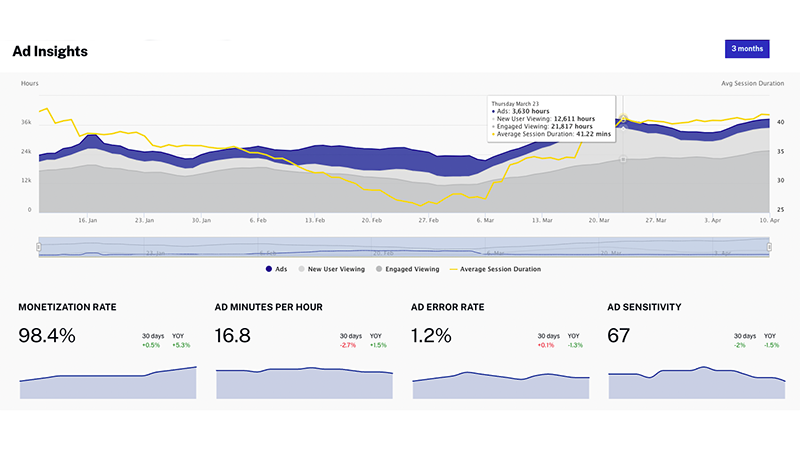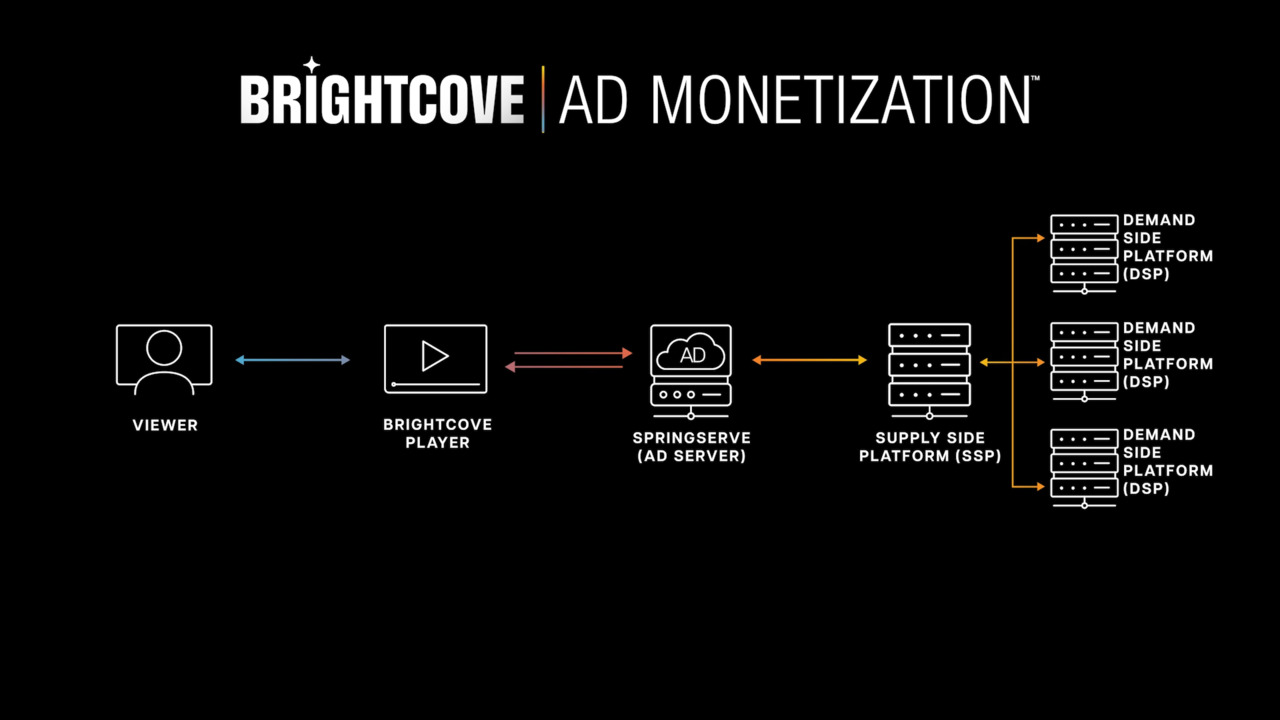Growing OTT Ad Revenue Without Losing User Engagement
Media

Today, we are witnessing the equivalent of cable “cord cutting” when it comes to users forgoing purely subscription-based streaming in exchange for AVOD (Advertising-based Video on Demand).
More and more users are increasingly choosing to watch ads in exchange for discounted or free streaming video content. In fact, by the end of 2023, over half of all U.S. internet users (50.7%) will be engaging with content via AVOD services.
Further, Deloitte Global predicts that almost two-thirds of consumers in developed countries will use at least one AVOD service monthly by 2023’s end. A year after that, half of major streaming providers are expected to have launched a free ad-supported streaming TV (FAST) service. As OTT providers adjust to this new reality, ad sensitivity has become front and center in the conversation on how to cater to today’s budget-conscious viewers.
The New Challenges of OTT
In the rapidly expanding AVOD landscape, Ad Ops teams must find the right balance. On one hand, they need to maximize the opportunity by increasing the frequency of ads and ad pod duration. On the other, they must ensure any changes in ad policy don’t alienate the loyal viewers they depend on to maintain and increase the price of their ad inventory.
But striking this balance can present challenges as platforms strive to maximize OTT ad revenue and increase user engagement.
For starters, Ad Ops teams are faced with the challenge of navigating non-uniform tech stacks. They’re forced to try to piece together data from a variety of tools like Google Analytics and other measurement tools to get a complete picture from multiple data sets. This lack of uniformity creates inefficiencies and further adds to the operational burden for those in charge of cleansing, normalizing, and actioning the data.
Additionally, the OTT advertising landscape is continuously evolving. The specialized technical and business expertise needed to stay competitive creates additional challenges as teams struggle to keep up with the latest developments, tech updates, and best practices.
Unfortunately for many, the issues go beyond being challenges and evolve into insurmountable barriers. As noted in research from Caretta, the complexity of ad tech systems and the sales process can cause streaming services to forgo AVOD, and the potential revenue it can generate, entirely. And for those who attempt yet fail to overcome these challenges, the impact can be equally damaging. Poorly executed ad strategies can lead to buffering and excessive ad loading and repetition, causing viewers to abandon the content and potentially the streaming service altogether.
The research points to how services like Brightcove Ad Monetization help platform operators transition into ad-funded streaming quickly while minimizing cost and risk. This Revenue-As-A-Service, as they call it, bridges gaps for newer platforms by combining industry expertise with the insights needed to help avoid common pitfalls.
A Holistic Approach to Overcoming the Challenges
To overcome these challenges and maximize revenue, OTT and Ad Ops teams need a streamlined approach that can provide unified yet robust analytics to optimize and balance their ad strategies.
However, the best approach will offer more than normalized data and unified measurement. Actionable insights are needed to understand the effects of ad policies on both revenue and viewer experience. In particular, a clear understanding of ad sensitivity will be critical for ongoing success.
In its simplest form, ad sensitivity is a measurement of the optimal number of ad breaks, the quantity and length of ad pods, and various playback conditions that minimize ad abandonment. Clearly, ad sensitivity will vary across different segments and content, as Deloitte noted way back in 2018. But it nonetheless affects user engagement, loyalty, and, ultimately, potential ad revenue. And with this foundation, the most effective ad policies can deliver a triple win: increased revenue, better ROI for advertisers, and the best experience for viewers.

It’s for these reasons that ad sensitivity is a key metric in Ad Insights, a core component of Brightcove’s Ad Monetization service. Ad Insights correlates ad frequency/intensity and session length/session return frequency to help you measure and assess the changes to your ad policies. So, not only can you easily measure ad sensitivity, you can achieve the optimal balance between ad frequency, ad pod duration, and viewer engagement.
By consolidating ad measurement, Brightcove Ad Insights simplifies ad strategy optimization and the implementation of timely changes, all from within Brightcove. No more endless and unreconciled spreadsheets. Ad Insights intuitive visualizations show how advertising policy affects audience engagement over time and across dimensions like playback device, content length, viewer region, and more. This enables users to dial in a yield-optimized ad policy tailored to the viewer experience that maximizes engagement.
A Better Approach to OTT
Incorporating Brightcove Ad Insights into your OTT advertising can bring a variety of benefits, including increased revenues, better user engagement, and more demand from advertisers.
By utilizing the insights to optimize your advertising strategies, you’ll have much better visibility into which advertising strategies align best with audience preferences and content types. This delivers a more engaging viewer experience that leads to a higher consumption of content. In turn, you’ll see higher returns on your ad inventory from advertisers who are willing to spend more for an engaged audience. It’s a truly effective way to deliver the triple-win scenario for your advertisers, engaged viewers, and your bottom line.



